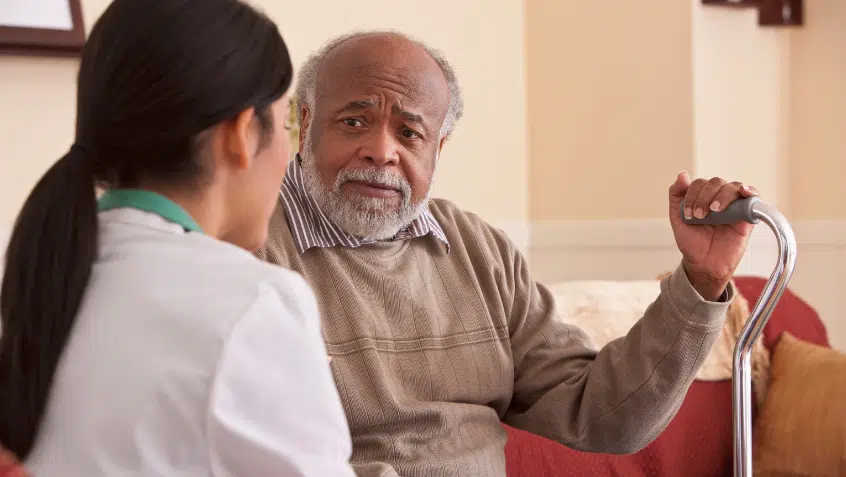School Reopening Policy Must Consider Risks to Older Adults

Fall is quickly approaching, meaning more and more schools and parents must decide whether to resume in-person classes amid the continued COVID-19 public health emergency. Importantly, because these choices will have implications for students, school employees, families, and communities, they will require a careful balancing of factors.
Among them, that re-opening schools could further spread the virus in ways that put people with Medicare at greater risk. The underlying concern is that students who become infected at school could bring the virus home, possibly infecting others. This could be especially dangerous for the millions of adults over age 65 who, according to the Kaiser Family Foundation (KFF), live in a household with school-age children.
The KFF data show that over three million older adults, around 6% of people over 65 in the United States, live with over four million school-age children. The prevalence is higher among older adults of color, with nearly one in five older adults who are Asian and Pacific Islander or Latino living with at least one school-age child. Hawaii (15%), California (11%), and Texas (9%) show the highest percentage of older adults sharing a home with school-age children.
While some evidence shows that younger children may be less likely to become infected with COVID-19 and less likely to become severely ill if infected, the same is not true of their older relations. The Centers for Disease Control and Prevention identifies older adults as especially at risk from severe illness from COVID-19. People with certain disabilities and chronic conditions are also at elevated risk.
Preliminary studies from South Korea also show that compared to adults, children younger than 10 are less likely to spread the virus responsible for COVID-19, but young people between ages 10 and 19 are more likely to do so. This means that older adults in households with tweens and teens may be at extreme risk if their young family members attend school in person.
In addition, school administrators, teachers, and other employees may face risks as schools reopen. Previous work from KFF shows that nearly one in four teachers are in a higher risk category for severe COVID-19 illness, including being over age 65. As states, localities, schools, and families contemplate a return to in-person classrooms, we encourage decision-makers to ensure that the health and well-being of people with Medicare are seriously considered in all discussions. The safety of millions of older adults, people with disabilities, and people with chronic conditions must not be taken for granted.
Read the KFF issue brief on older adults living with school-age children.
Read more about teachers at risk for severe COVID-19 illness.
Read more about the South Korean study on coronavirus transmission.
The Latest
Most Read
Congress Moves to Cut Medicaid
Threats to the Social Security Administration and to Benefits Continue to Raise Alarm
House Adopts Senate Budget Plan, Laying the Groundwork for Significant Health Care Cuts
Trump Administration and DOGE Eliminate Staff Who Help Older Adults and People With Disabilities
Add Medicare to Your Inbox
Sign up to receive Medicare news, policy developments, and other useful updates from the Medicare Rights.
View this profile on InstagramMedicare Rights Center (@medicarerights) • Instagram photos and videos









